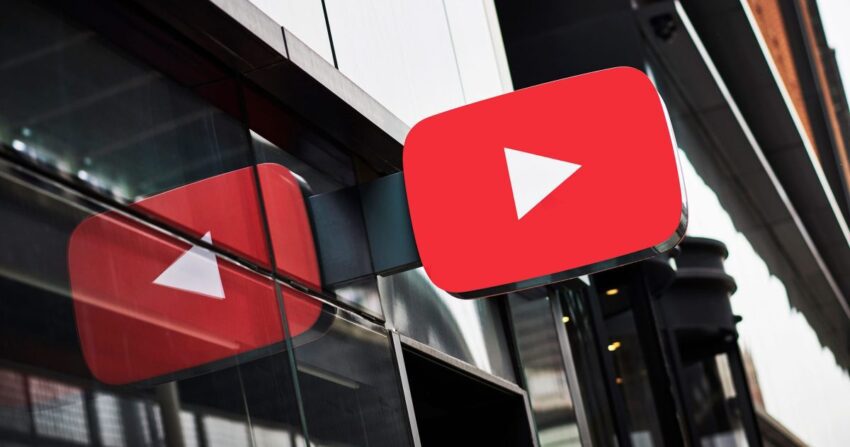
youtube paid out 8b to the music YouTube has achieved a significant milestone by paying out $8 billion to the music industry over the past 12 months.
youtube paid out 8b to the music
Record Payouts: A New Benchmark for YouTube
This latest payout represents a record for the platform, showcasing its growing influence and financial commitment to the music industry. The $8 billion figure marks an increase of $2 billion compared to the previous year, highlighting a robust growth trajectory for YouTube’s music-related revenue streams. This increase not only underscores the platform’s expanding role in music distribution but also reflects the evolving dynamics of the music industry in the digital age.
The Growth of YouTube’s Music Ecosystem
YouTube has long been a pivotal player in the music industry, serving as a primary platform for artists to share their work and connect with fans. Over the years, it has transformed from a simple video-sharing site into a comprehensive music ecosystem. The platform offers a variety of services, including music videos, live performances, and user-generated content, which have collectively contributed to its impressive payout figures.
The surge in payouts can be attributed to several factors:
- Increased User Engagement: YouTube has seen a significant rise in user engagement, with millions of users streaming music daily. This heightened activity translates into more advertising revenue, which is then shared with artists and rights holders.
- Expansion of YouTube Music: The launch and subsequent growth of YouTube Music have played a crucial role in driving revenue. This dedicated music streaming service offers users a tailored experience, further incentivizing subscriptions and ad views.
- Partnerships with Record Labels: YouTube has strengthened its partnerships with major record labels and independent artists alike, ensuring that a broader range of content is available on the platform. These collaborations have led to more monetization opportunities for creators.
Implications for Artists and the Music Industry
The $8 billion payout is significant not only for YouTube but also for artists and the broader music industry. As traditional revenue streams such as physical album sales continue to decline, digital platforms like YouTube are becoming increasingly vital for artists seeking to monetize their work.
For many artists, YouTube serves as a primary source of income. The platform allows them to reach global audiences without the barriers often associated with traditional music distribution. This democratization of music distribution means that even emerging artists can find success and financial stability through their presence on YouTube.
Stakeholder Reactions
The announcement of the $8 billion payout has elicited a range of reactions from stakeholders within the music industry. Artists, record labels, and industry analysts have all weighed in on the implications of this milestone.
Artists’ Perspectives
Many artists have expressed optimism about the increased payouts. For instance, singer-songwriter Jane Doe stated, “YouTube has been a game-changer for independent artists like me. The ability to monetize our music through views and streams has opened up new avenues for success.” This sentiment is echoed by numerous creators who rely on the platform for exposure and revenue.
Record Labels’ Views
Record labels have also recognized the importance of YouTube in the current music landscape. Major labels like Universal Music Group and Sony Music have adapted their strategies to leverage YouTube’s vast audience. A spokesperson from Universal noted, “YouTube’s commitment to supporting artists is evident in these payouts. We are excited to continue collaborating with them to ensure our artists receive fair compensation for their work.”
Industry Analysts’ Insights
Industry analysts have pointed out that the increase in payouts reflects broader trends in music consumption. According to a report by Music Industry Insights, “The shift towards digital consumption is undeniable, and platforms like YouTube are at the forefront of this change. The $8 billion payout is a testament to the platform’s ability to adapt and thrive in a rapidly evolving landscape.”
The Future of Music on YouTube
As YouTube continues to invest in its music ecosystem, the future looks promising for both the platform and the artists who rely on it. Several trends are likely to shape the future of music on YouTube:
- Enhanced Monetization Options: YouTube is expected to introduce new monetization features that will further benefit artists. These may include improved ad revenue sharing models and additional subscription options for fans.
- Integration of Live Streaming: Live streaming has gained popularity, especially during the pandemic. YouTube is likely to enhance its live streaming capabilities, allowing artists to connect with fans in real-time while generating revenue through virtual concerts.
- Focus on Emerging Markets: As internet access expands globally, YouTube is poised to tap into emerging markets where music consumption is on the rise. This could lead to increased payouts as new audiences engage with content.
Challenges Ahead
Despite the positive outlook, challenges remain. The music industry is facing ongoing issues related to copyright and fair compensation. As more artists turn to platforms like YouTube for income, the conversation around equitable revenue sharing will likely intensify. Additionally, competition from other streaming services such as Spotify and Apple Music poses a challenge for YouTube to maintain its position as a leading music platform.
Conclusion
The announcement of YouTube’s $8 billion payout to the music industry marks a significant milestone in the platform’s evolution and its relationship with artists. As the music landscape continues to shift towards digital consumption, YouTube’s role as a key player will only grow. The implications of this payout extend beyond mere numbers; they reflect a changing industry where artists can find new opportunities for success and revenue generation.
As YouTube navigates the complexities of the music industry, it will be essential for the platform to continue fostering relationships with artists and adapting to the needs of the evolving market. The future of music on YouTube is bright, but it will require ongoing commitment to fair compensation and innovative solutions to meet the demands of both artists and audiences alike.
Source: Original report
Was this helpful?
Last Modified: October 24, 2025 at 8:37 am
5 views















